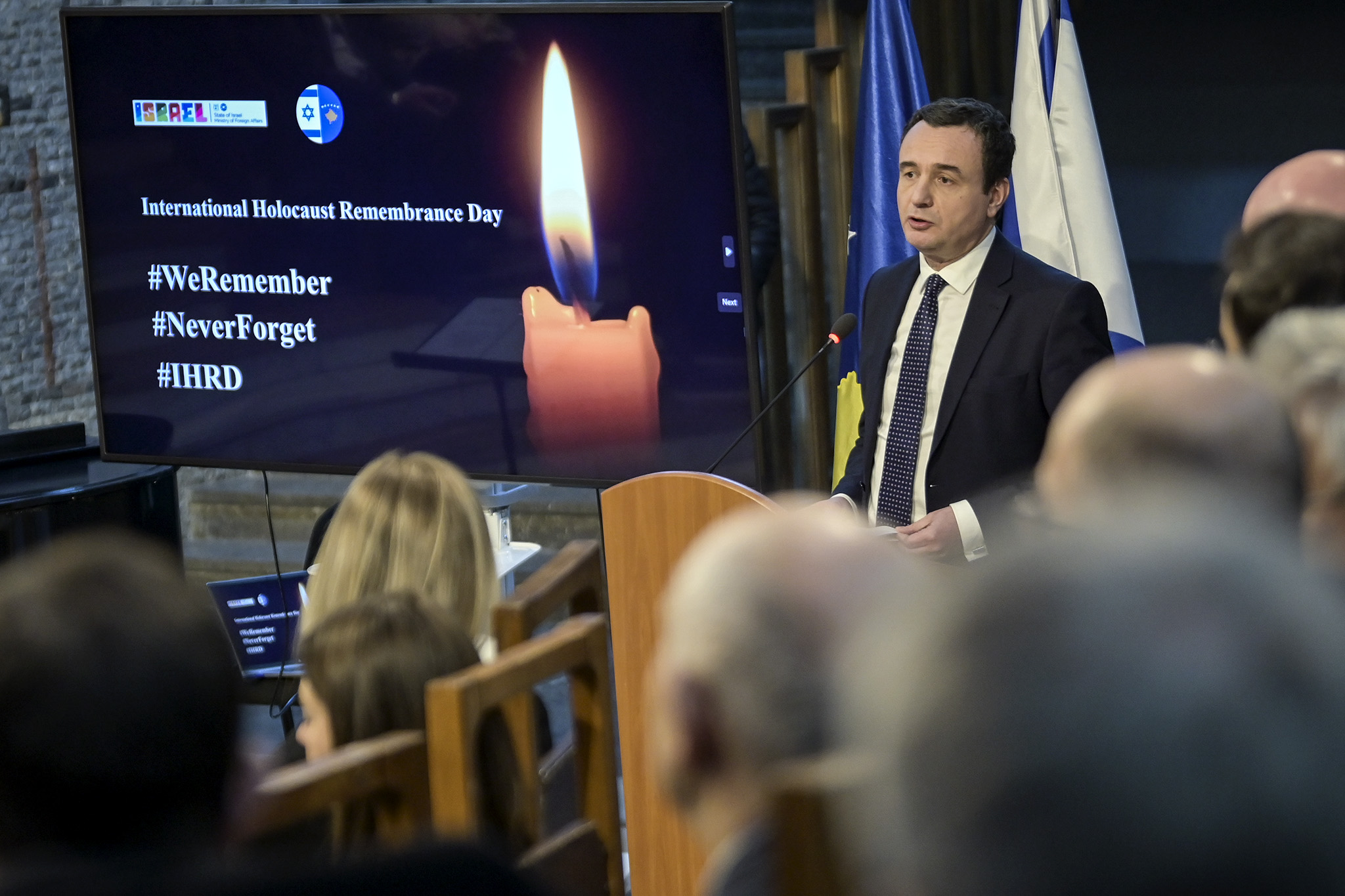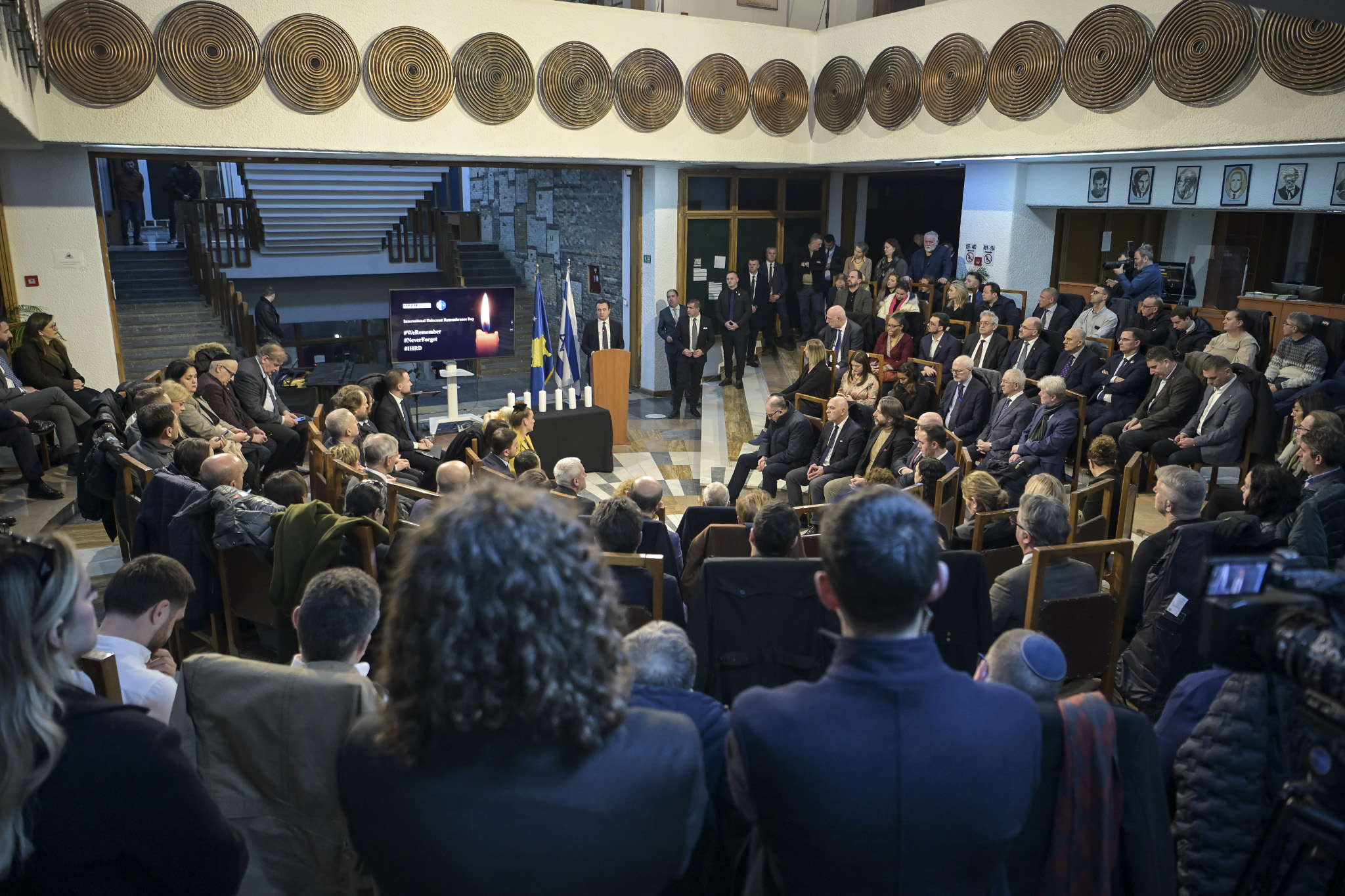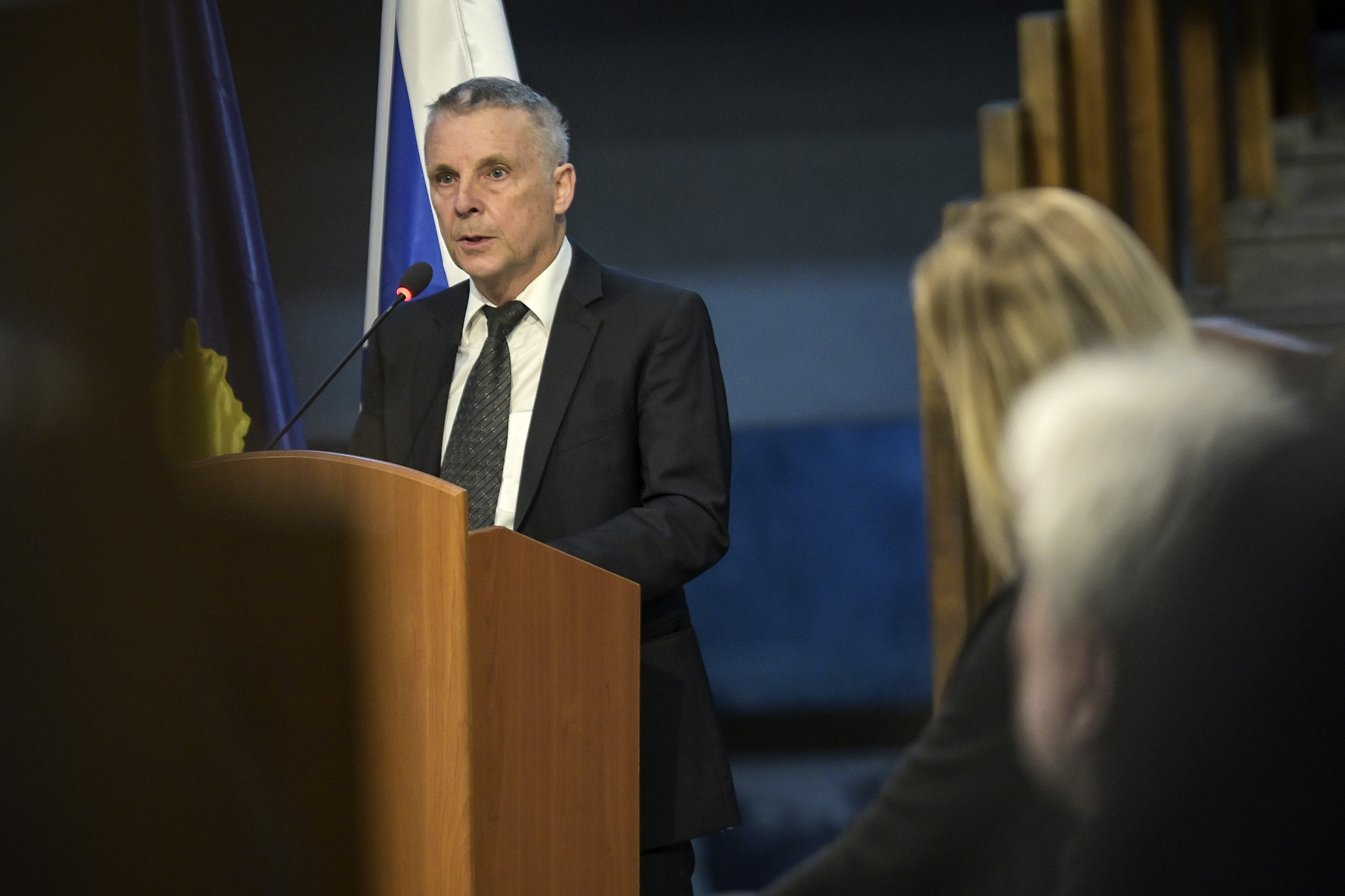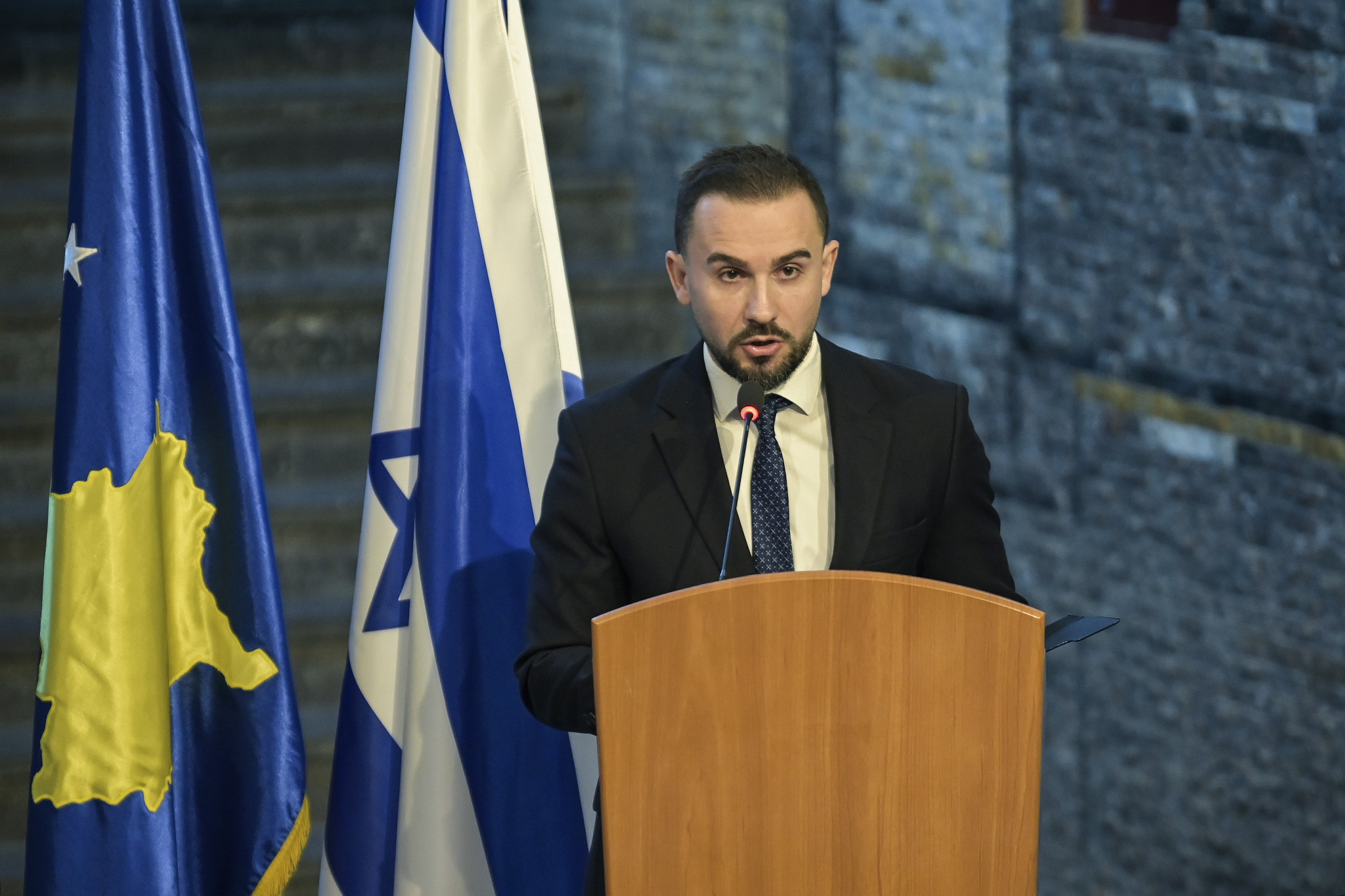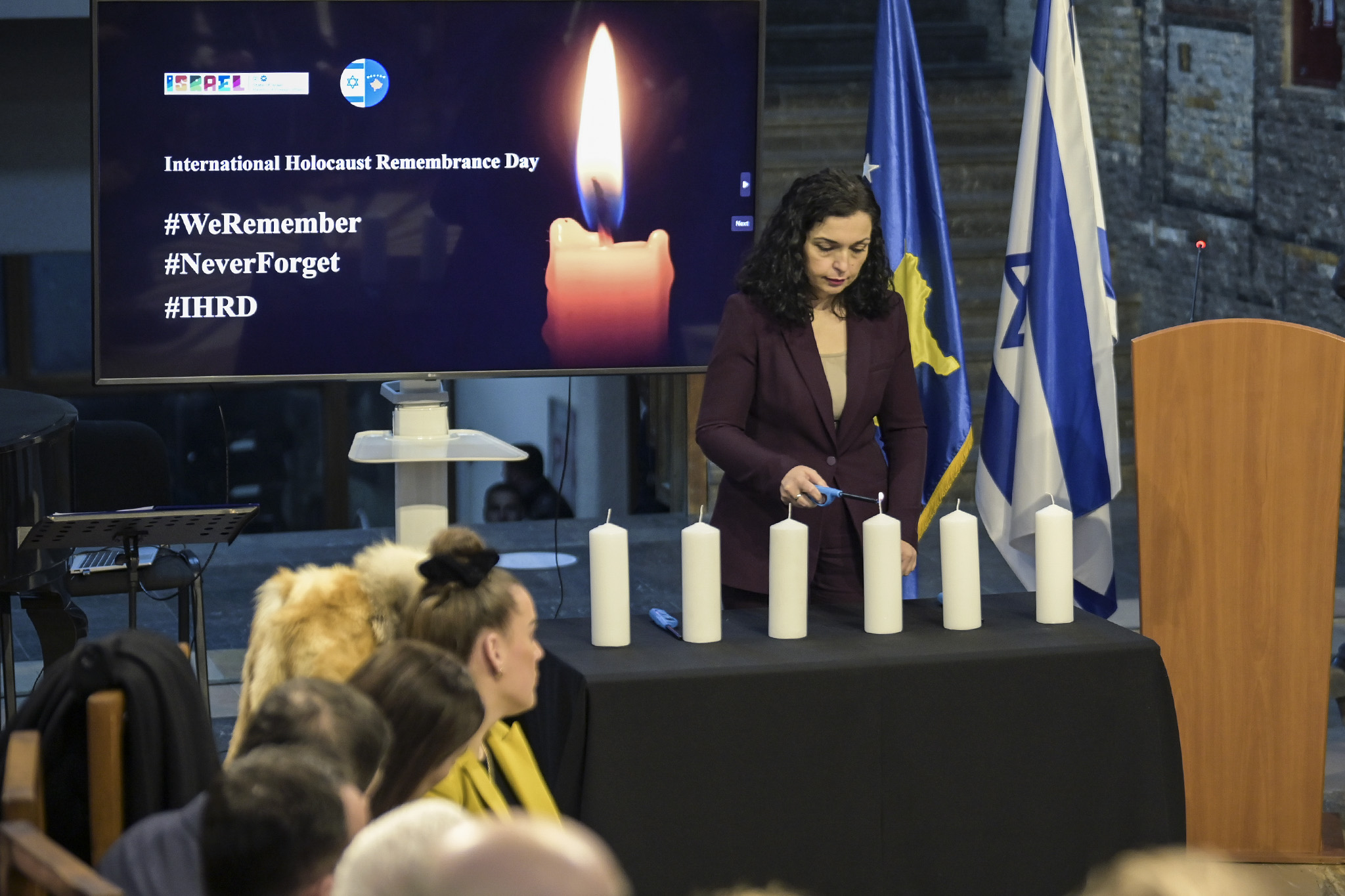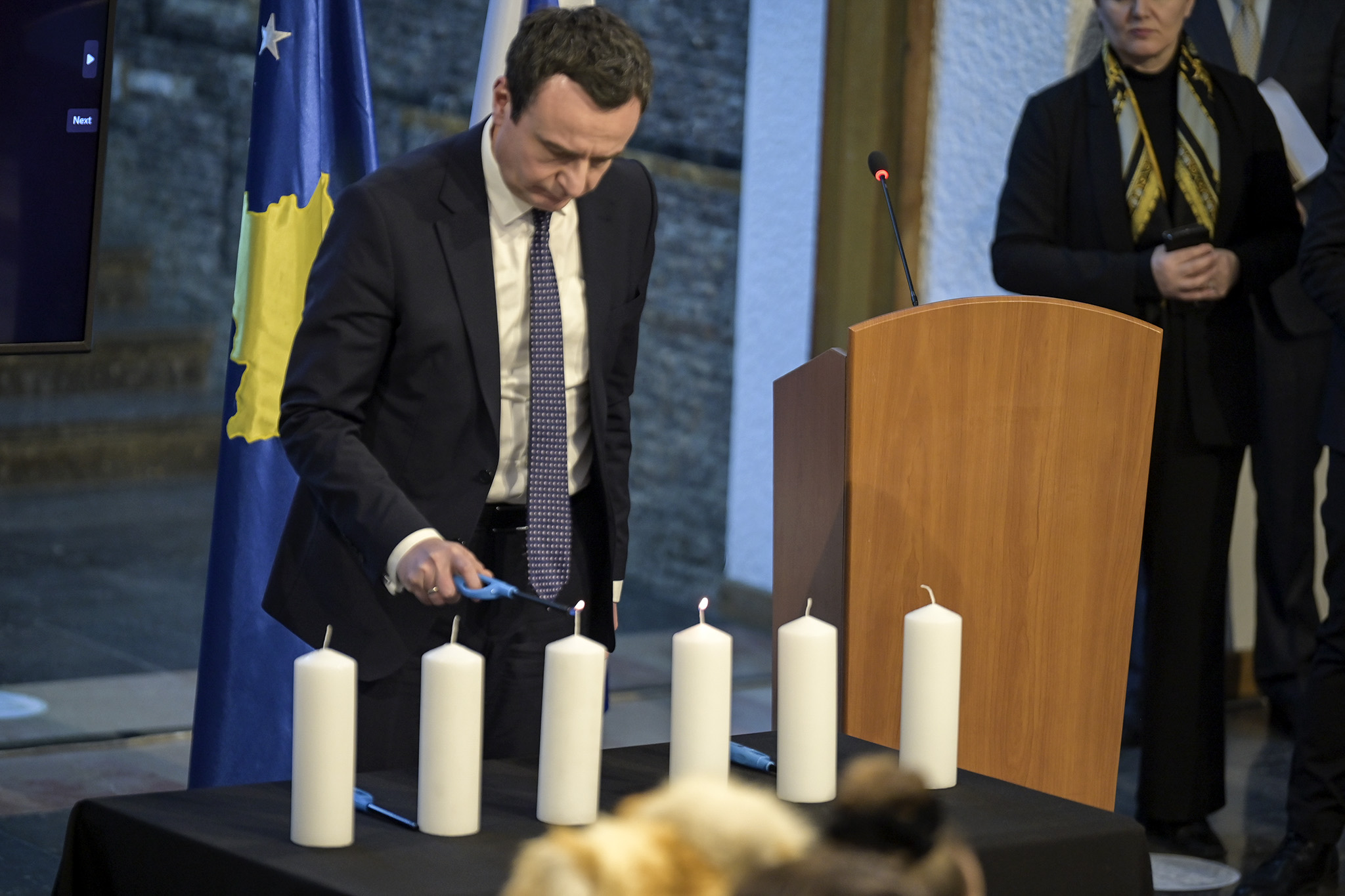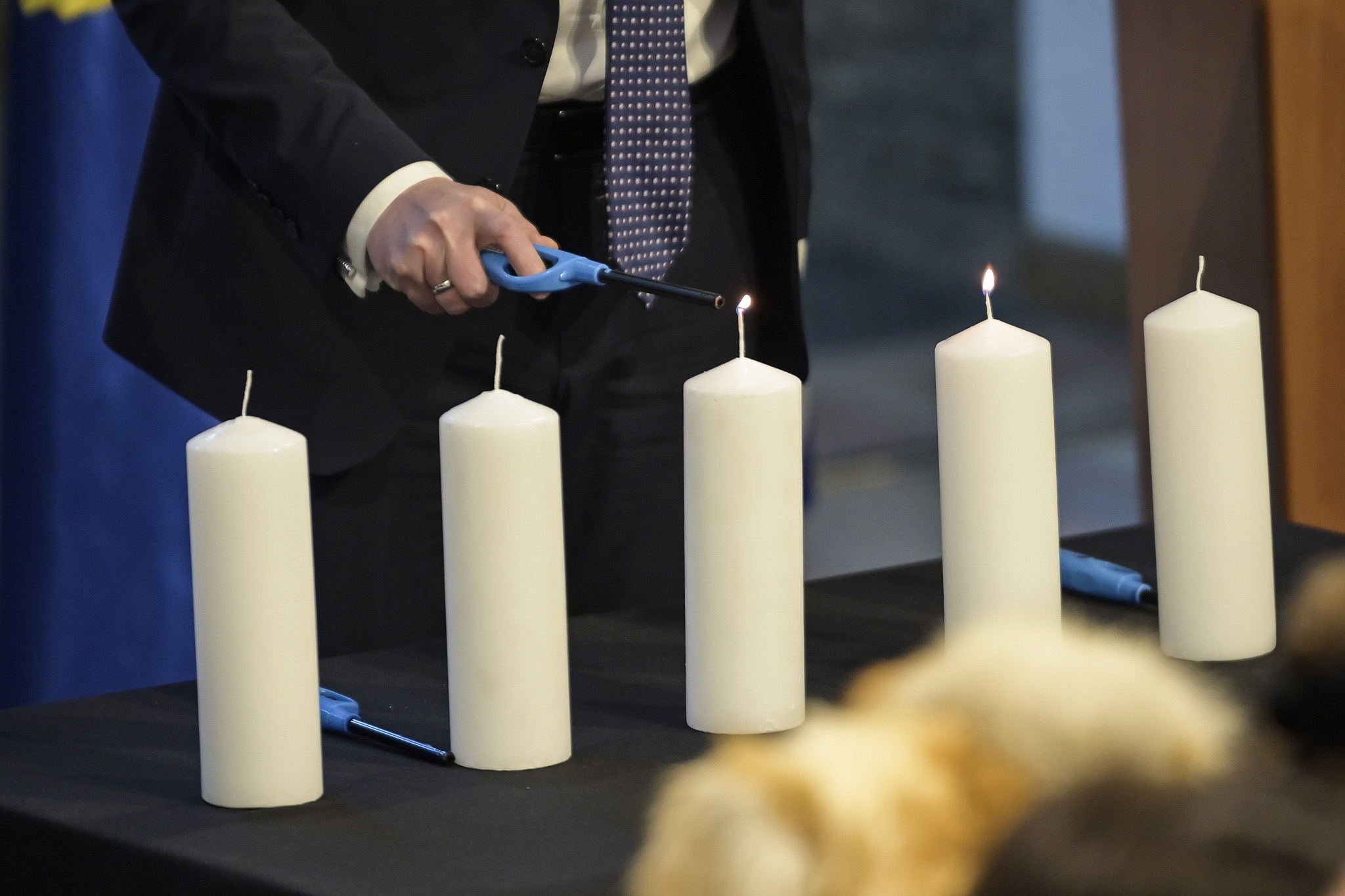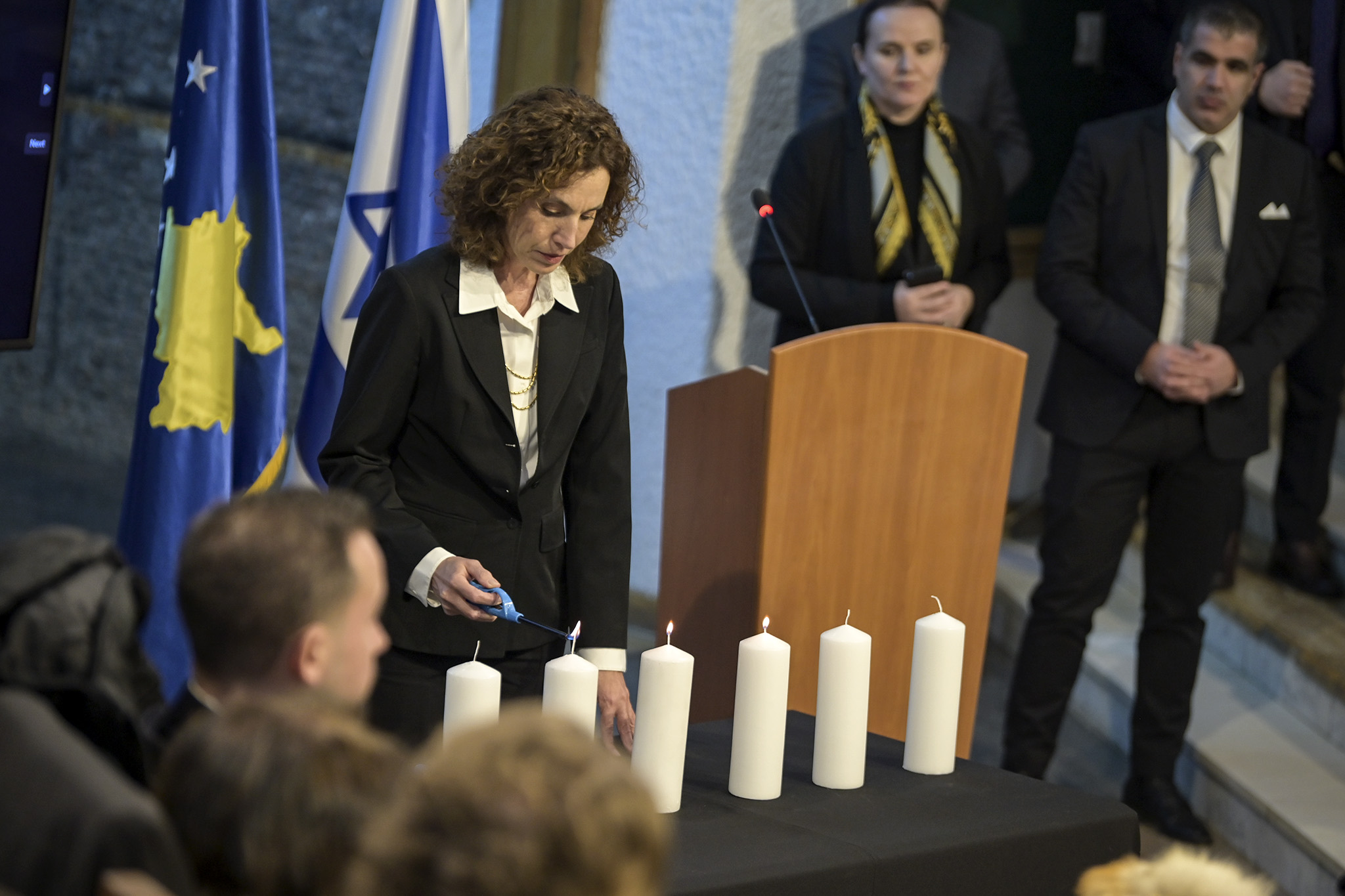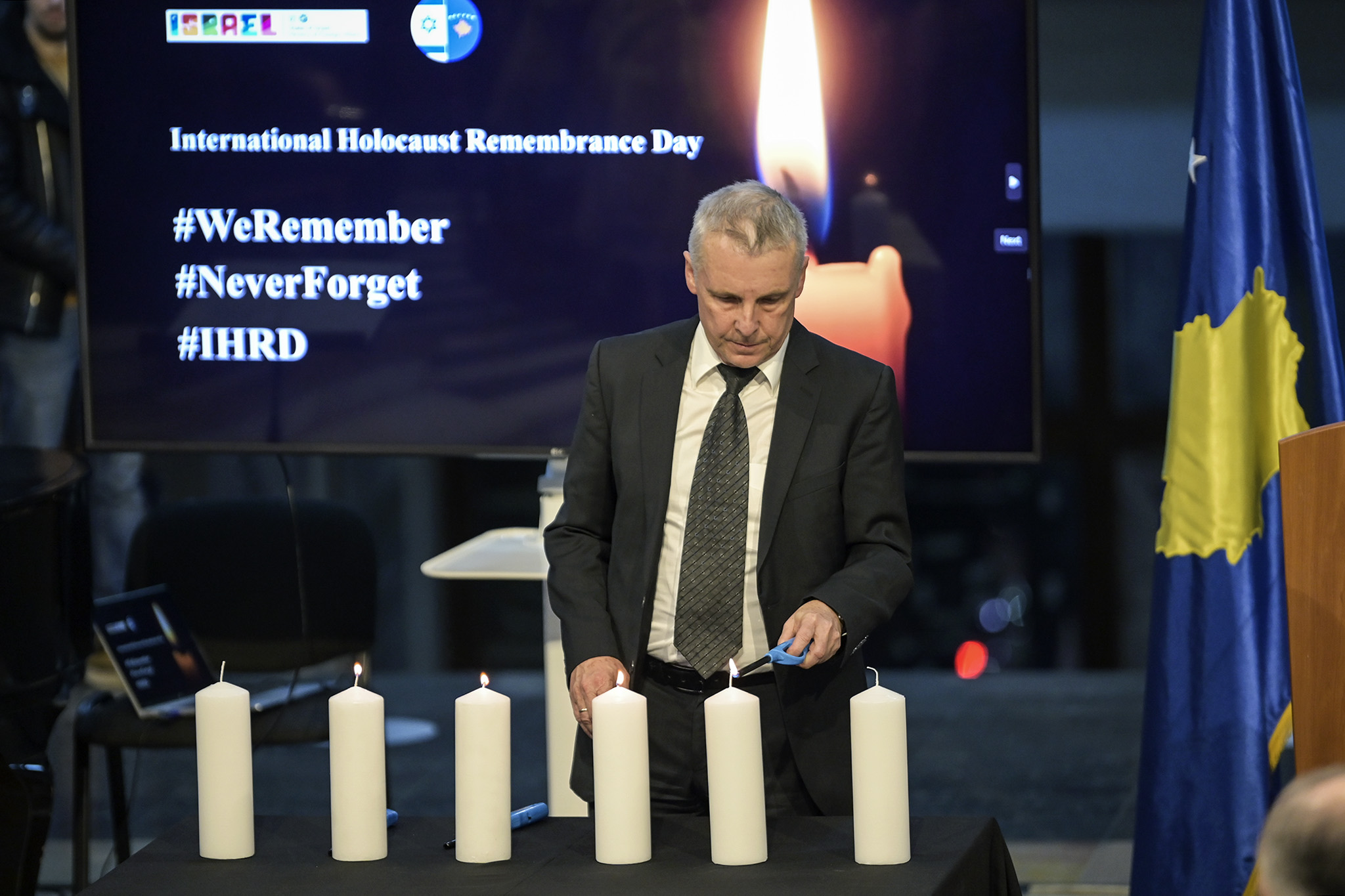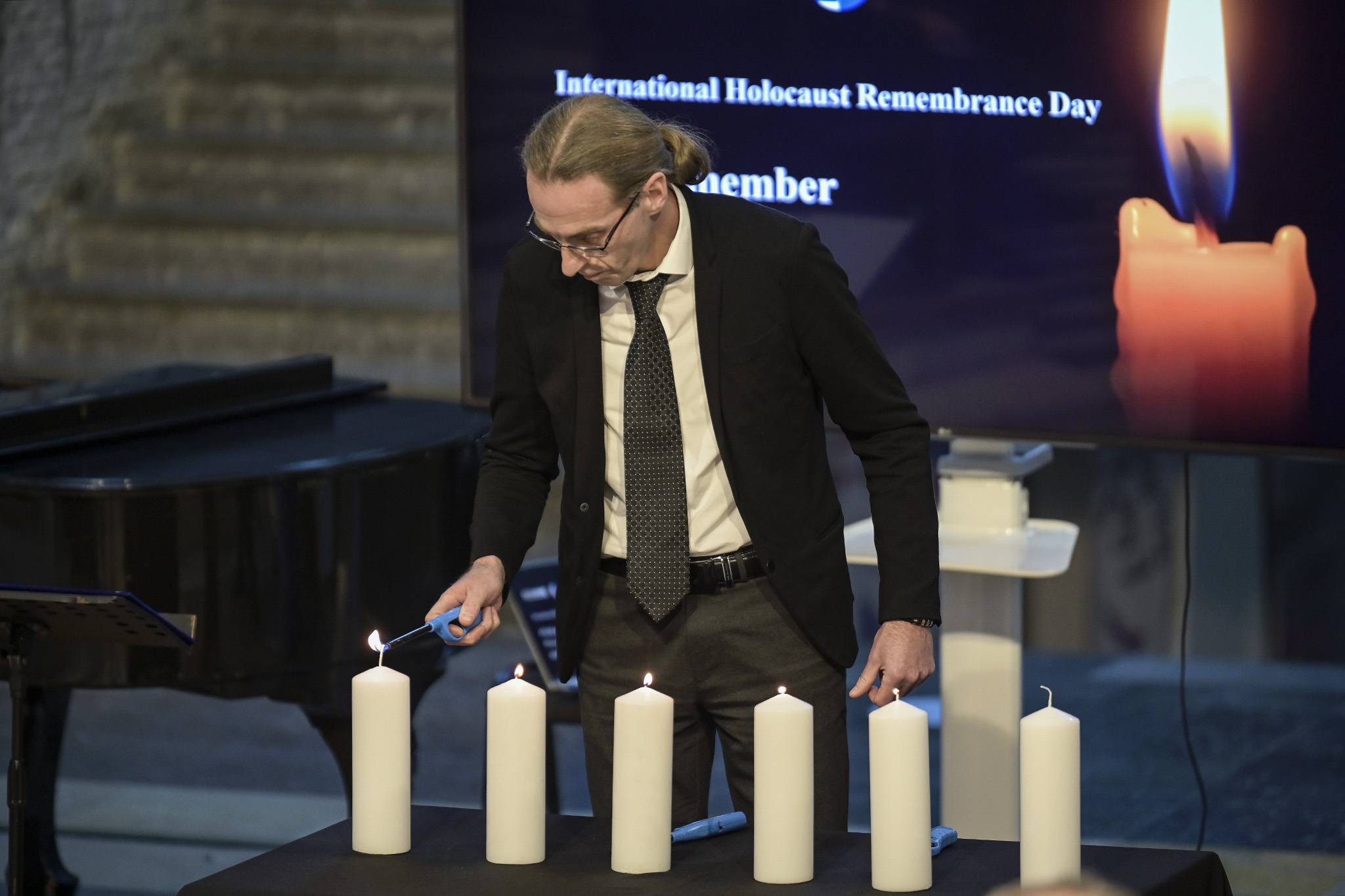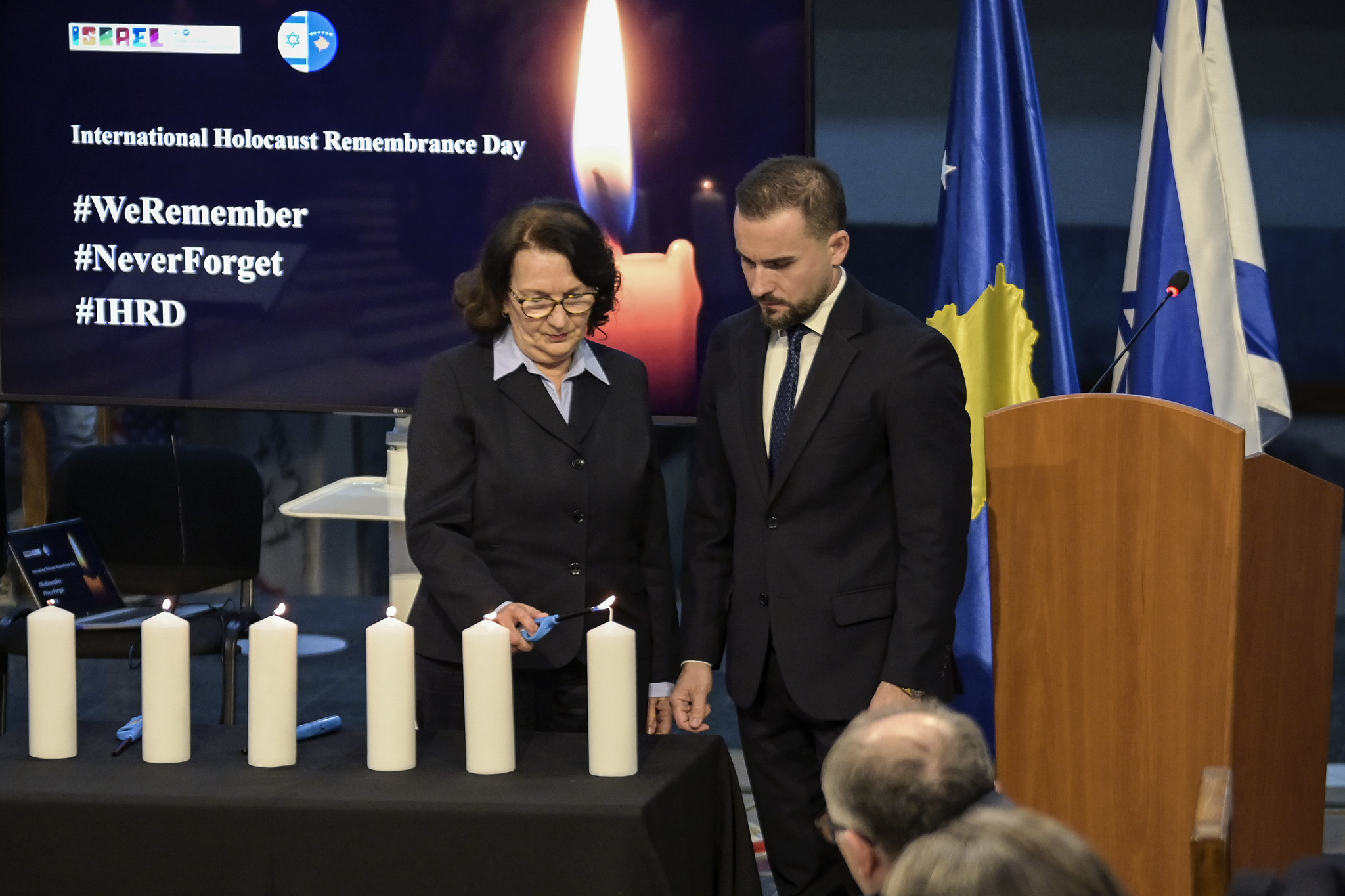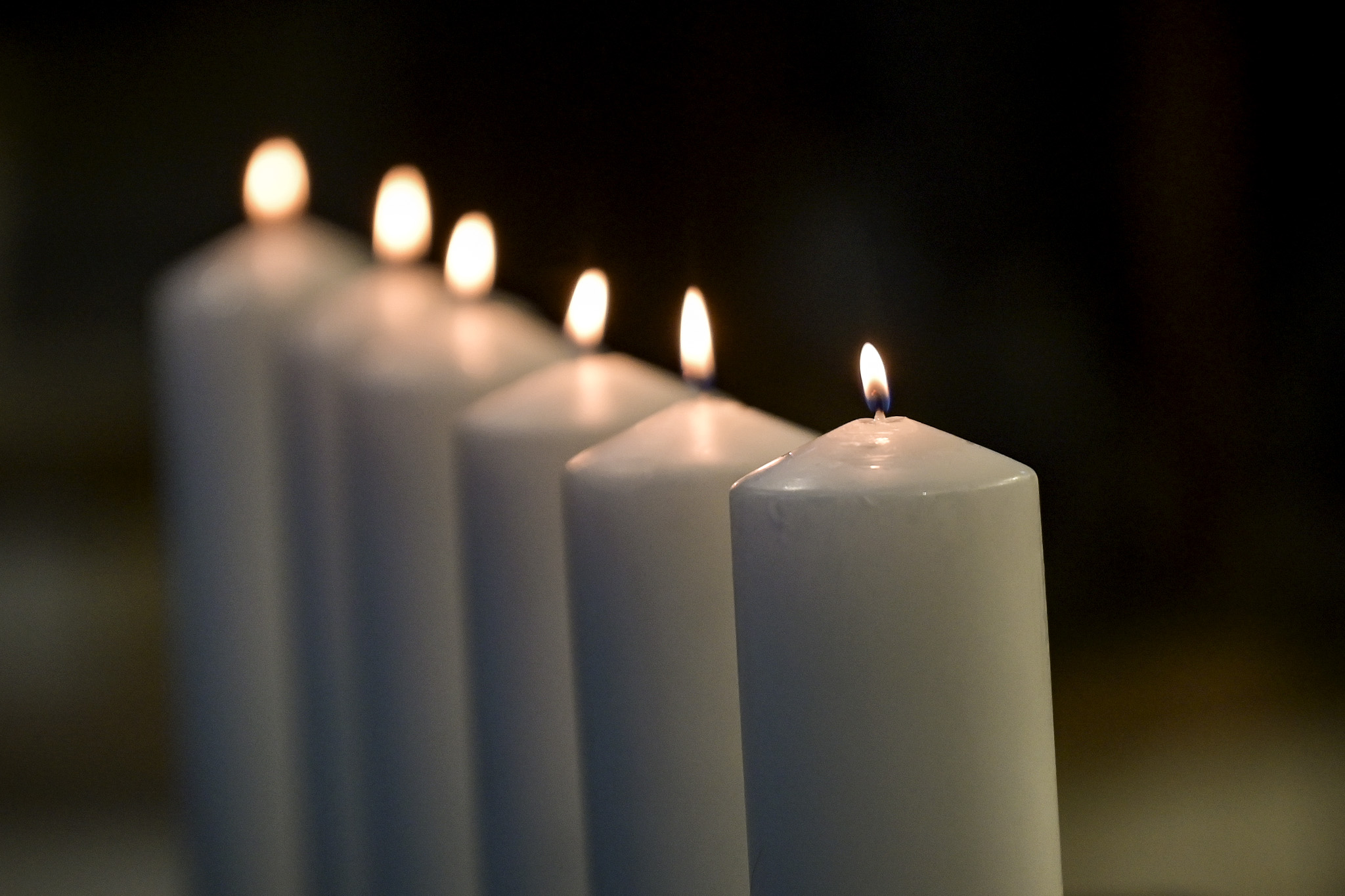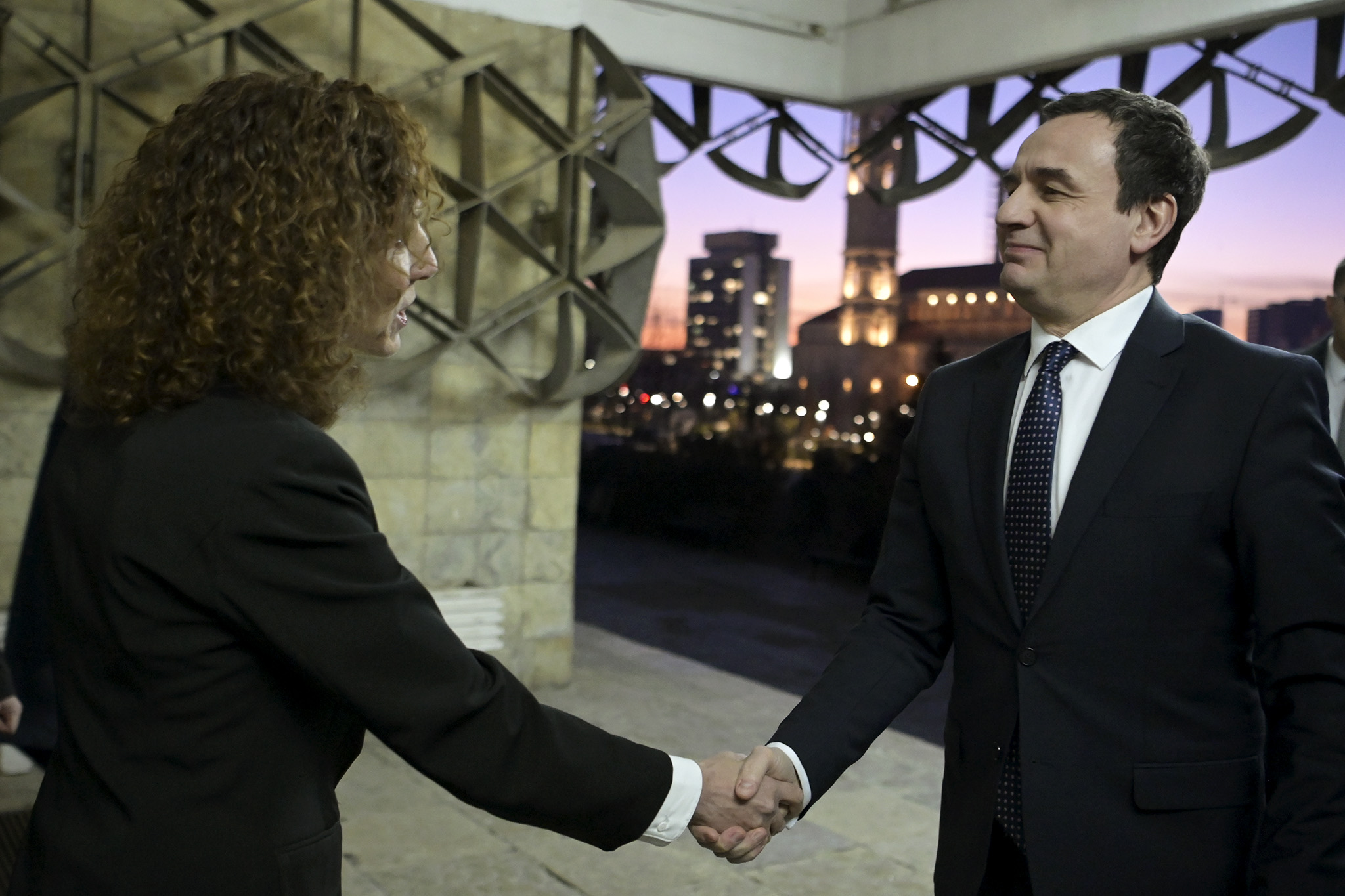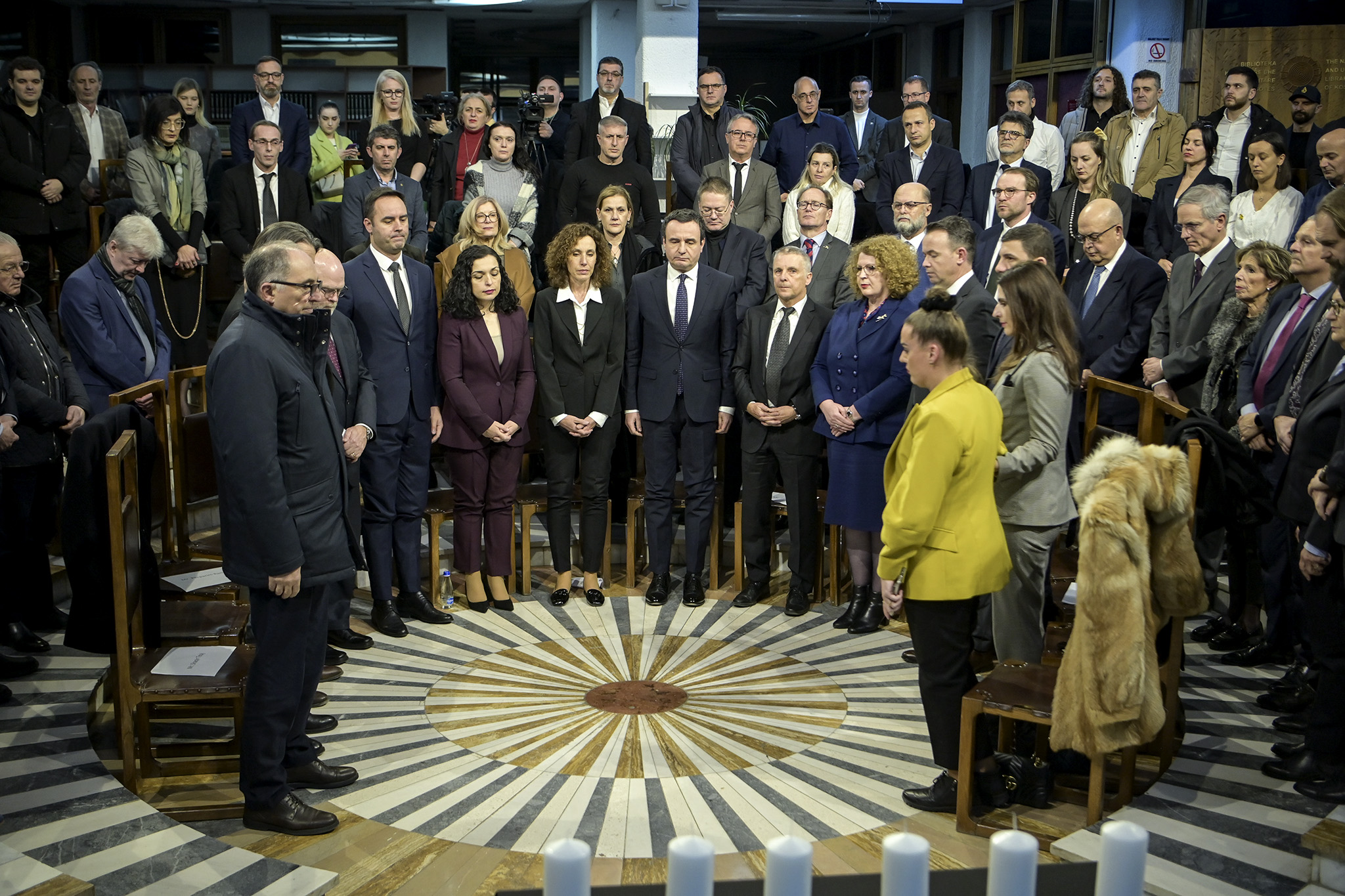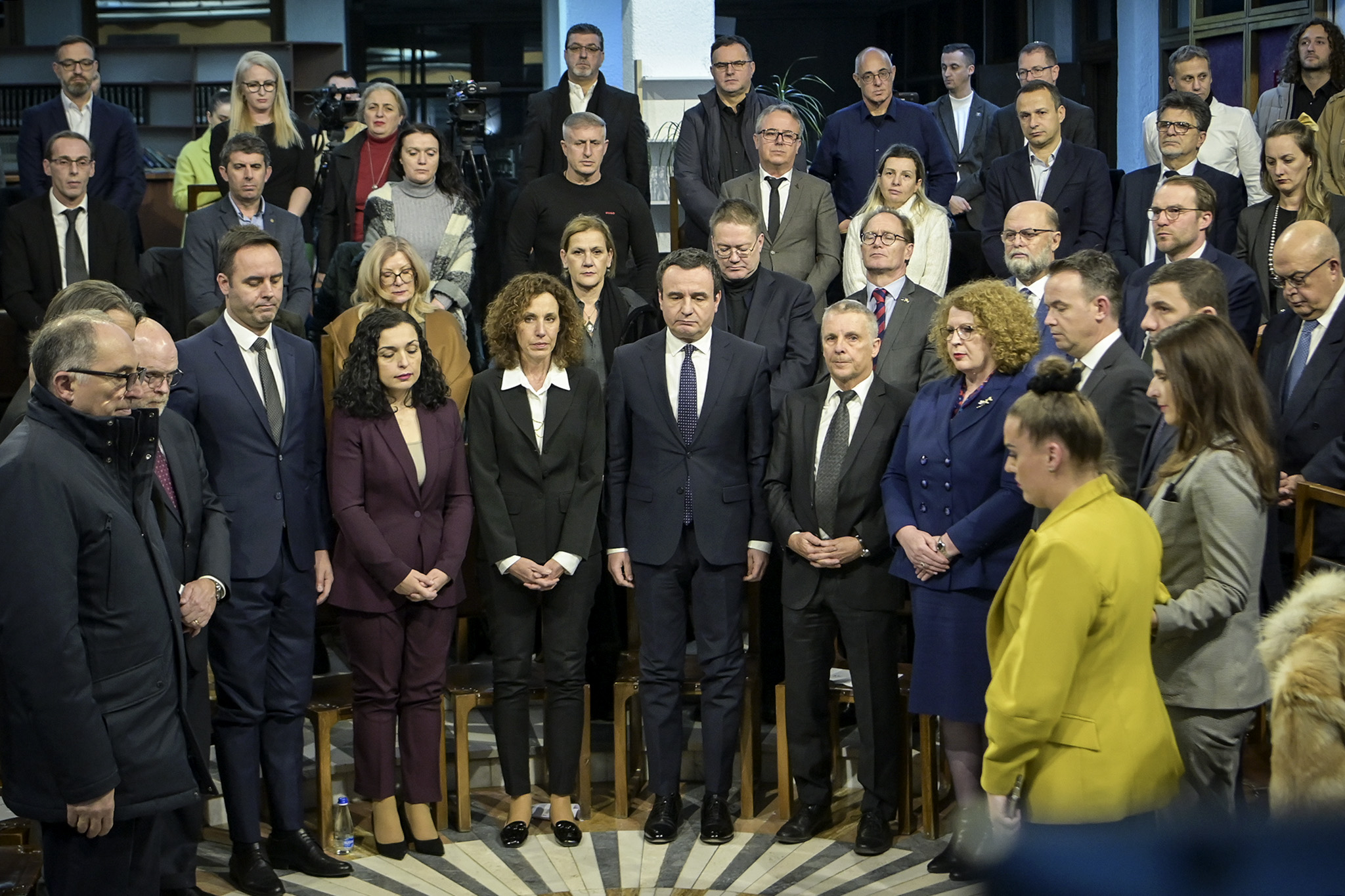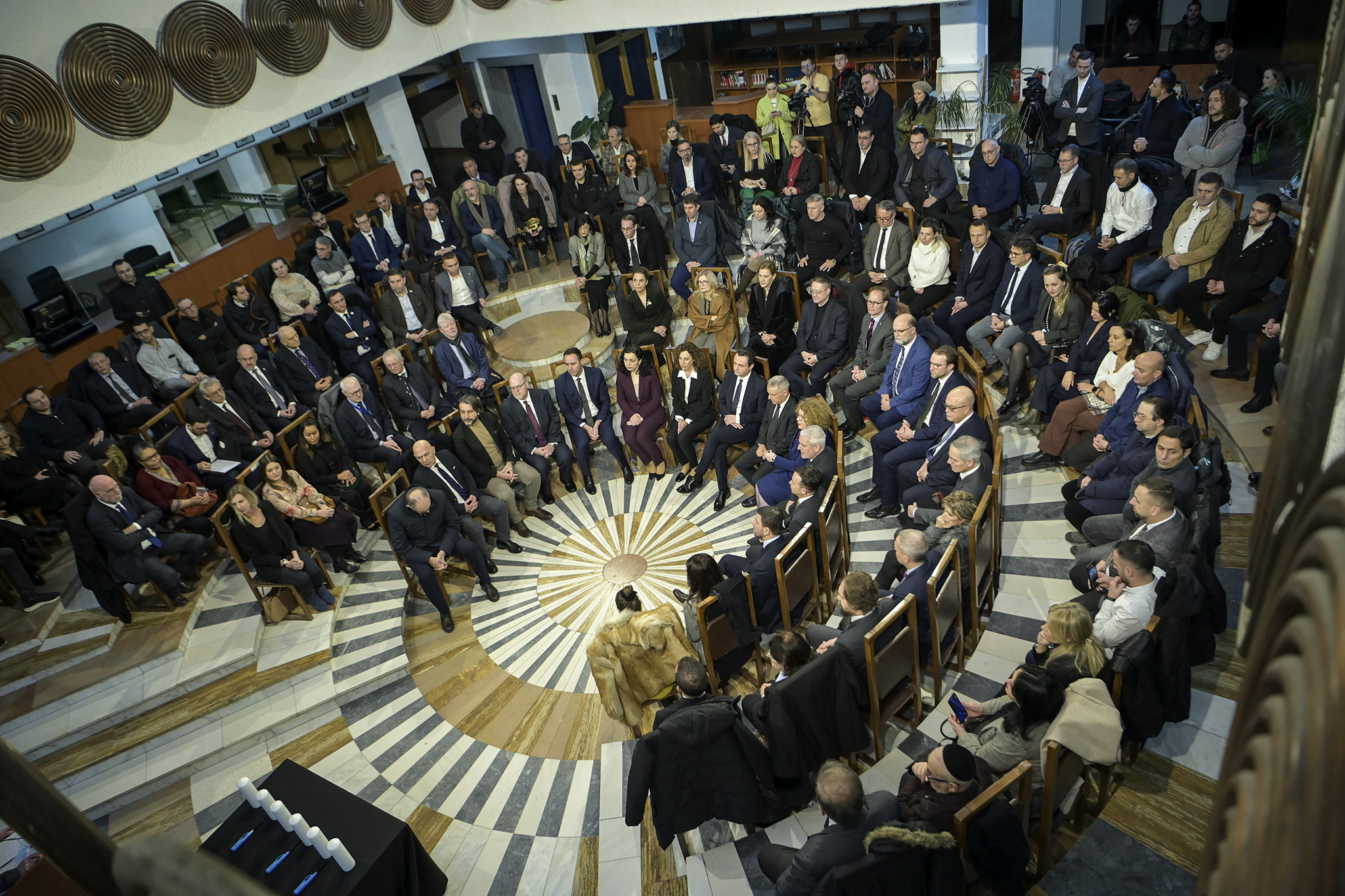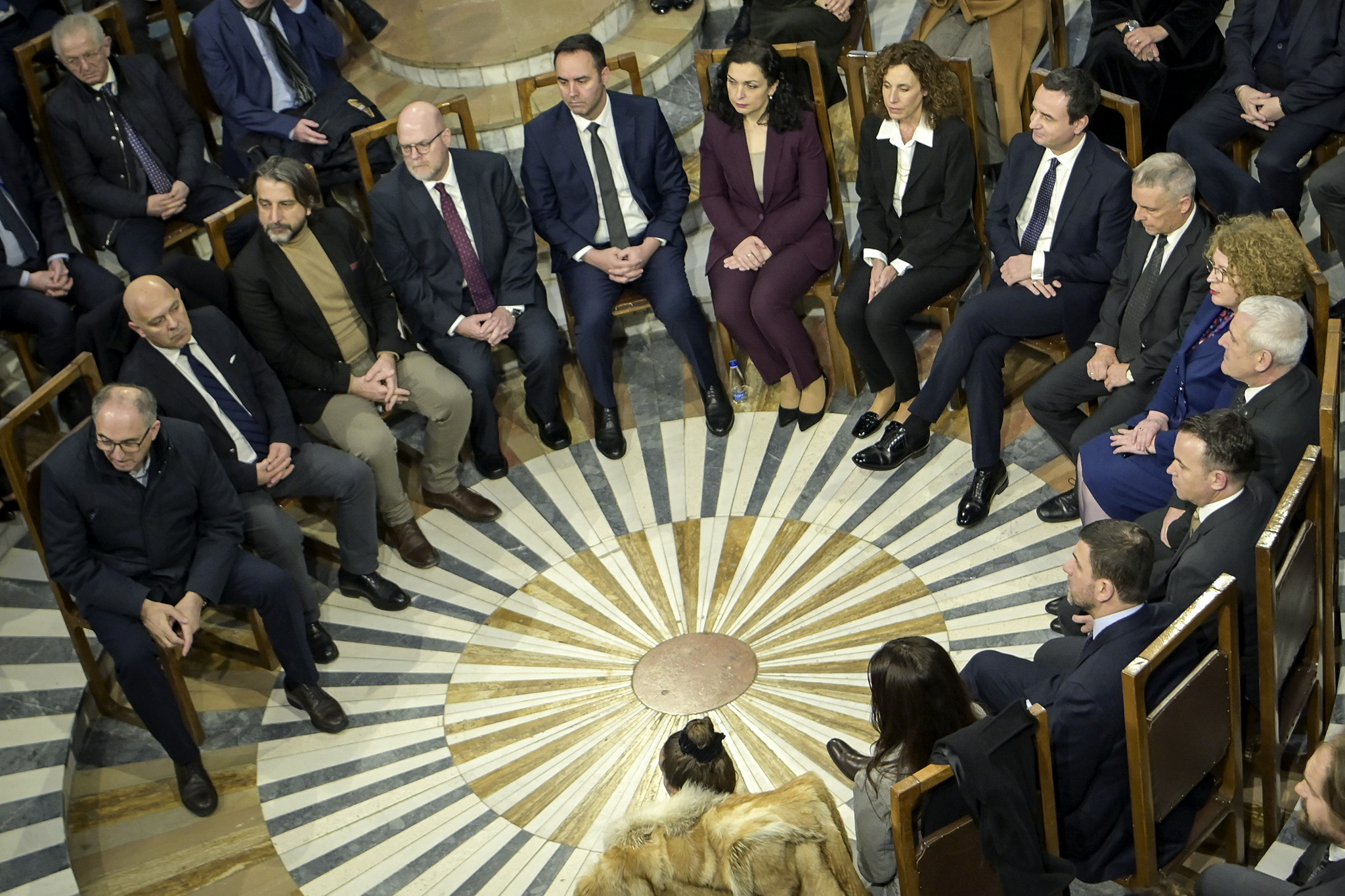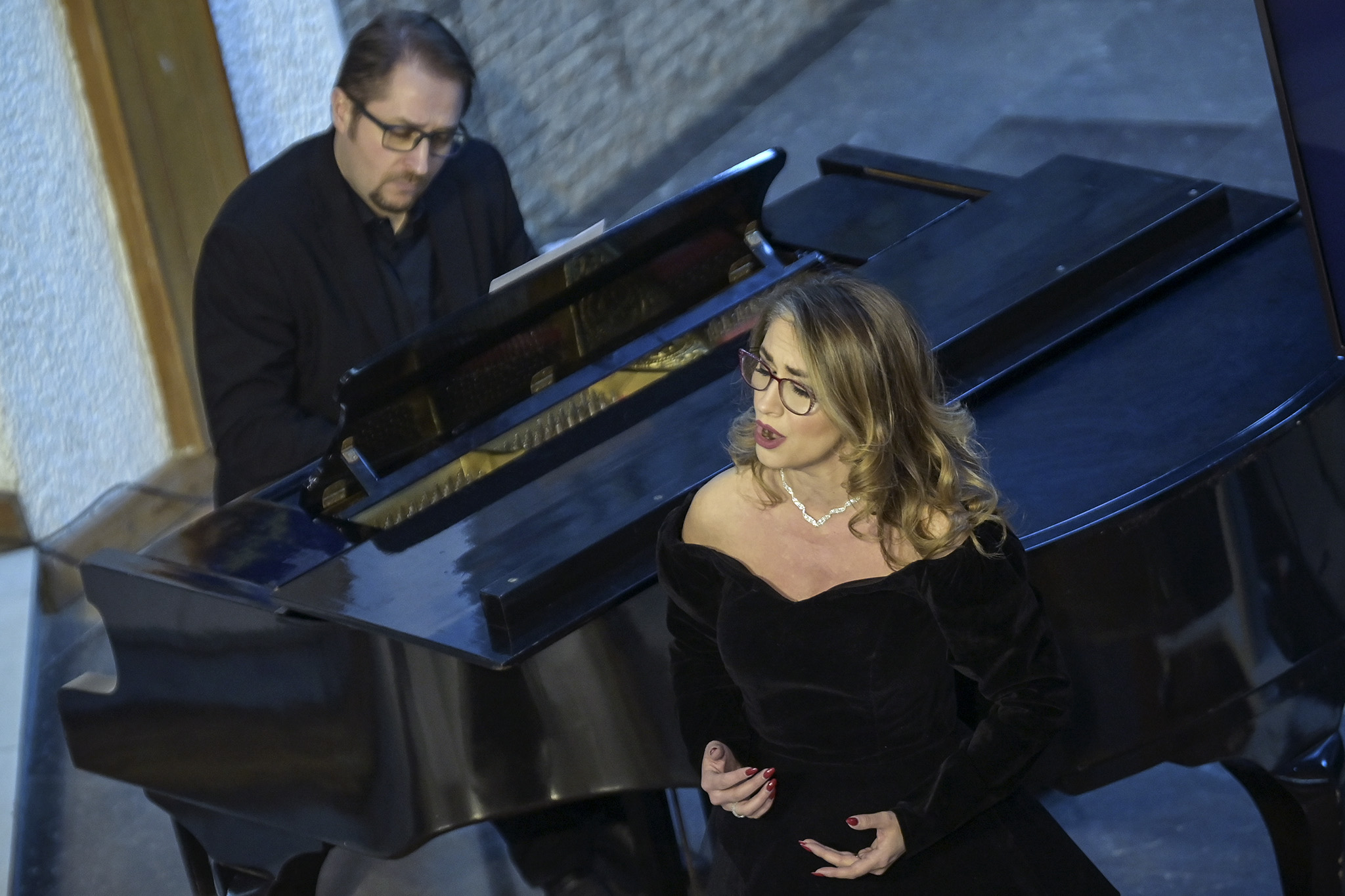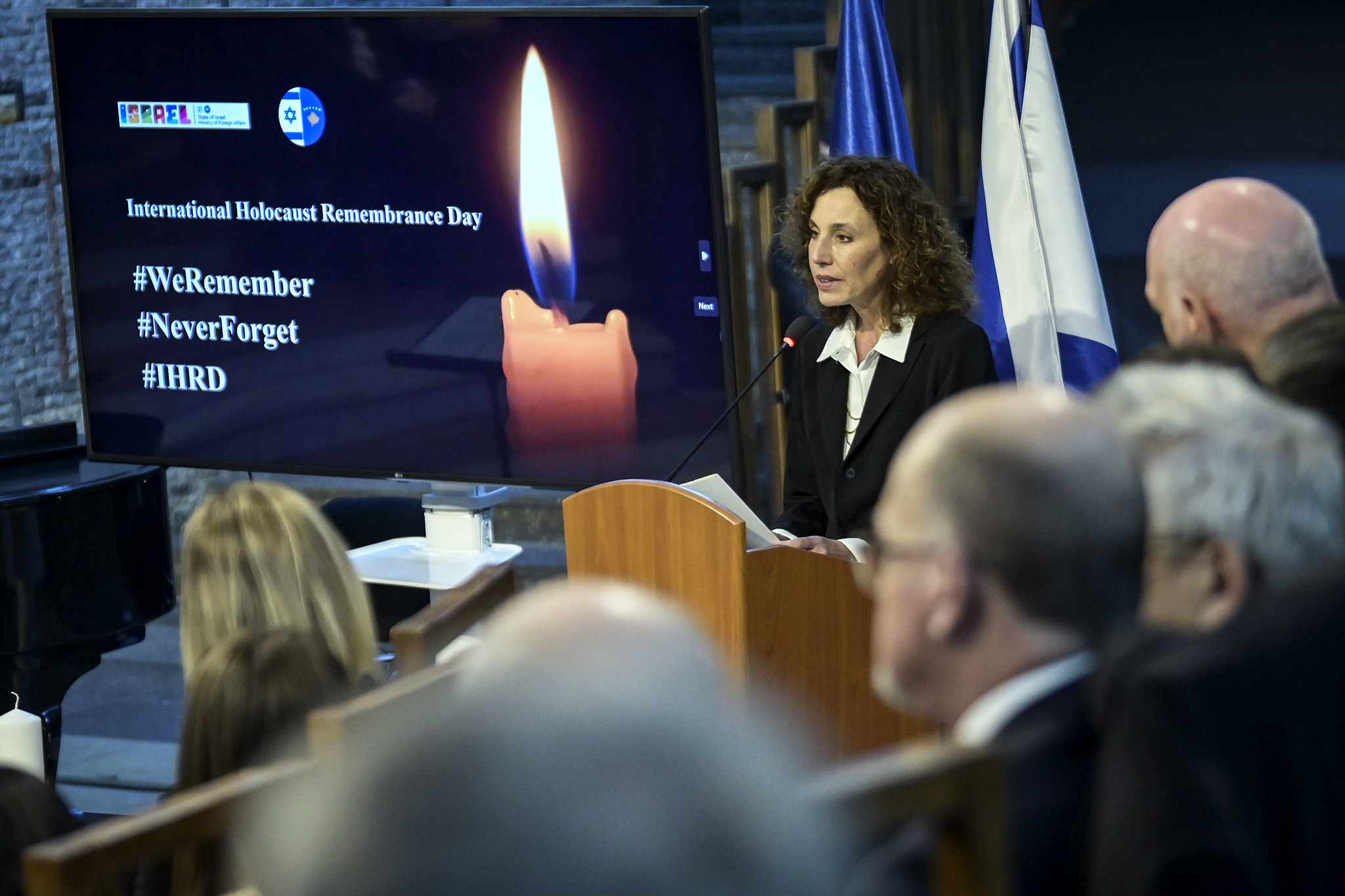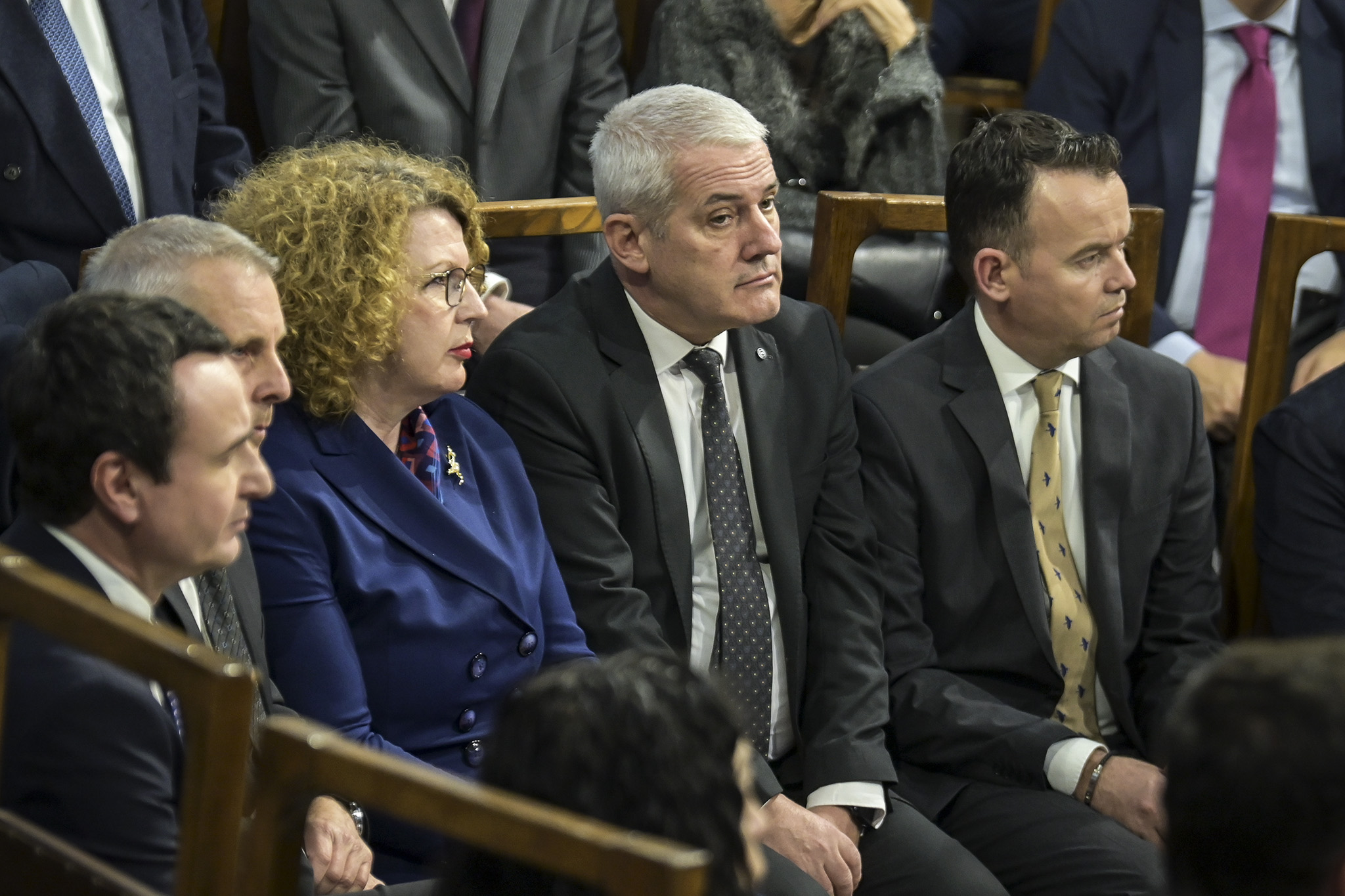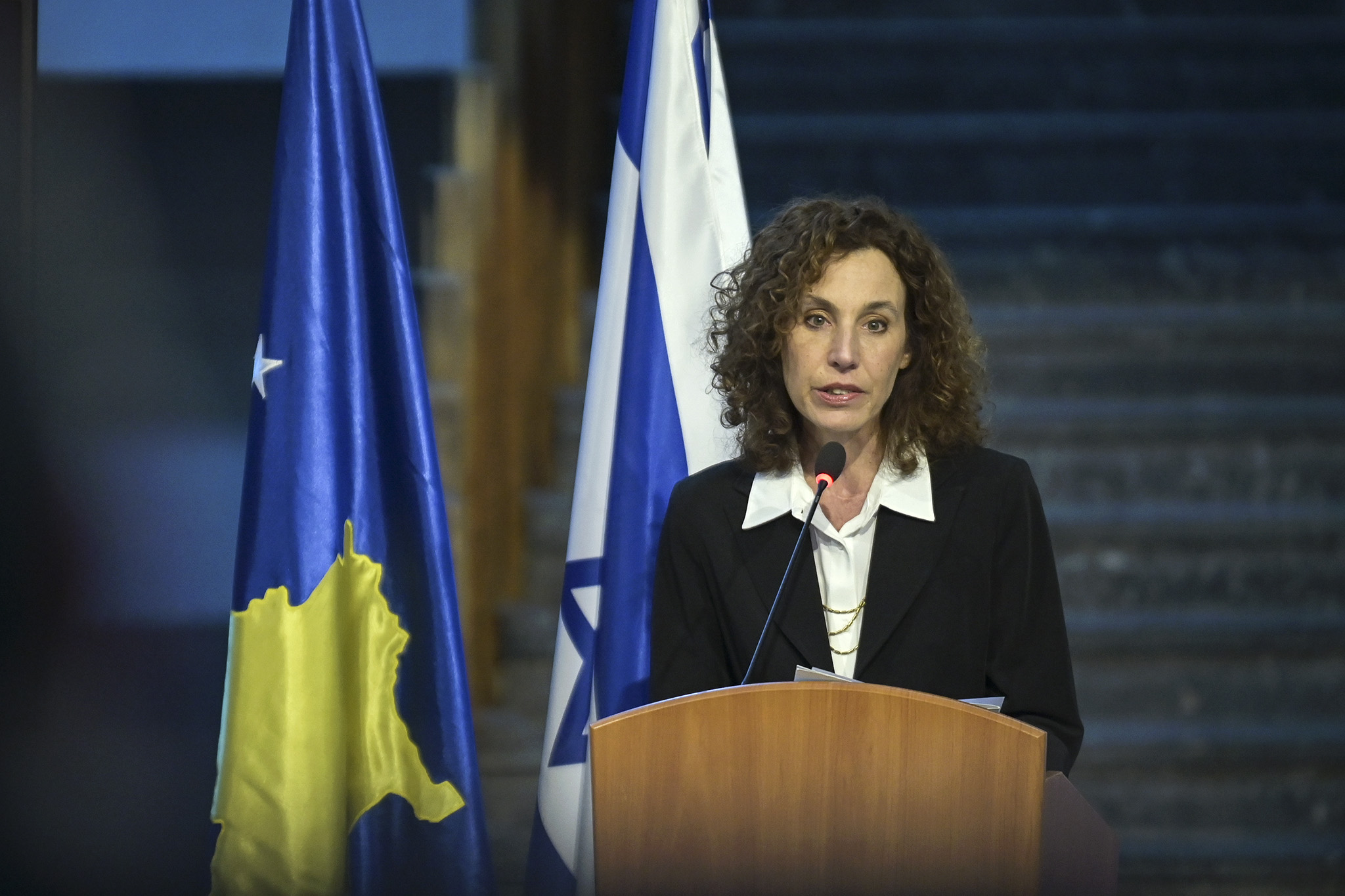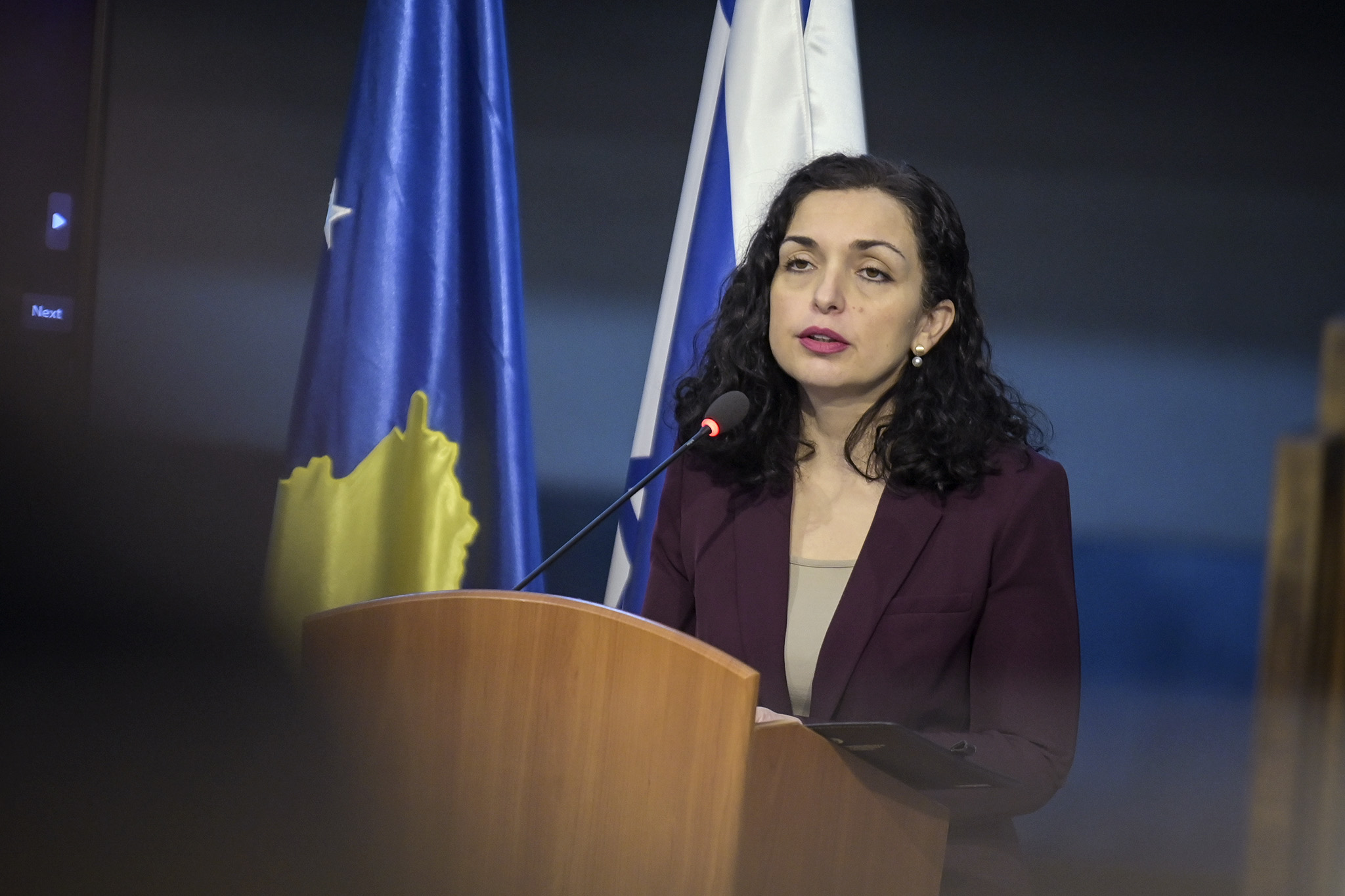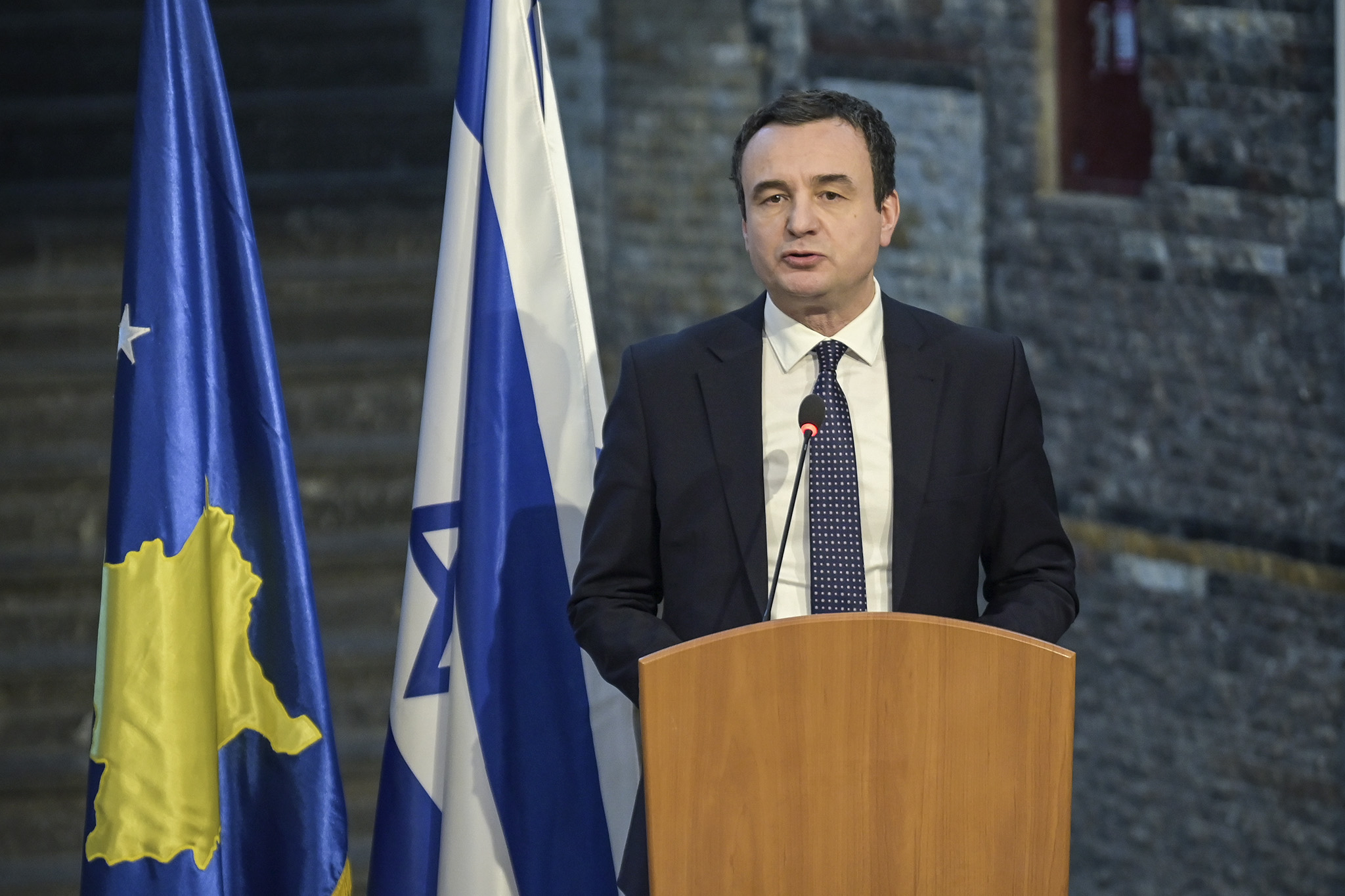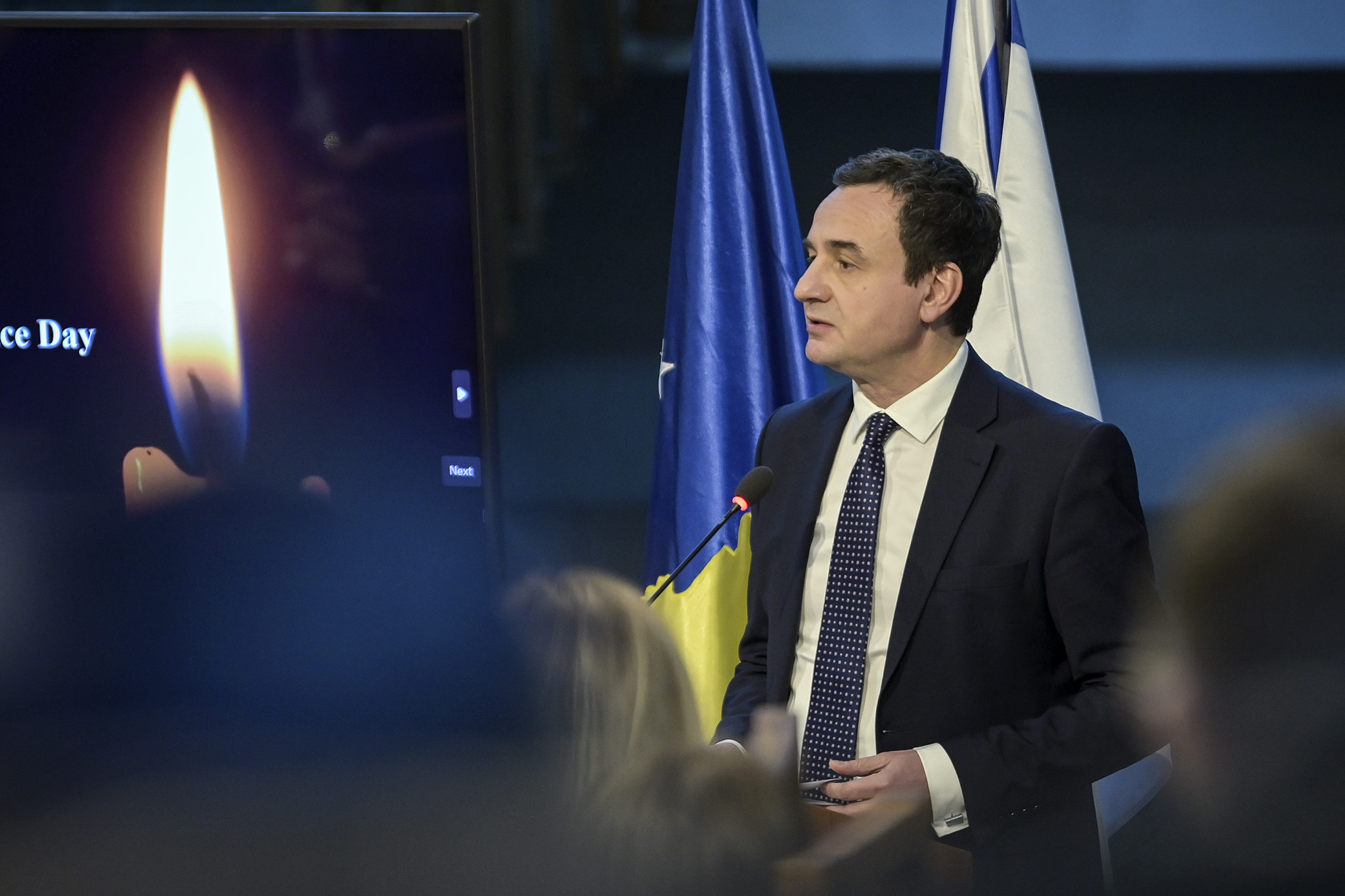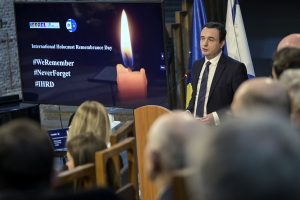Prishtina, 31 January, 2024
The Prime Minister of the Republic of Kosovo, Albin Kurti, participated today in the commemorative ceremony marking the International Holocaust Remembrance Day, which was held at the National Library under the organization of the Embassy of Israel in Kosovo.
In his speech to those present, including heads of state, ambassadors and representatives of institutions, he said that commemorating the Holocaust is the duty of all democracies, regardless of their role in it.
“The Holocaust serves us as a poignant example of the dangers of fanaticism and intolerance and that its memory motivates people to stand up against injustice and promote equality and dignity for all,” said the prime minister.
He added that the victims should not be perfect to deserve to speak out and the perpetrators should face justice because justice is far more perfect than any crime.
“The weight of the suffering of civilians, even if it is acted in self-defense, should be our compass in the way we move forward,” he said further, stressing that no current or future action by any government should paves the way for historical revision.
“The history of the Holocaust must be remembered, but it must never be changed,” Prime Minister Kurti said at the end of his speech.
The complete speech of the Prime Minister of the Republic of Kosovo, Albin Kurti:
During our last gathering, a year ago, in the front row, was sitting a dear friend of mine and a brilliant professor and psychiatrist, Moshe Landsman. He passed away two weeks ago but his spirit is with us, not only tonight. Let me start by expressing my heartfelt condolences to all his students and colleagues and others – all those who met him, certainly will never forget him.
Your Excellency Vjosa Osmani-Sadriu, President of the Republic of Kosova,
Your Excellency Ambassador Tamar Ziv, Ambassador of the State of Israel to the Republic of Kosova,
Your Excellency Glauk Konjufca, Speaker of the Assembly of the Republic of Kosova,
Your Excellency Ambassador Jörn Rohde, Ambassador of the Federal Republic of Germany to the Republic of Kosova,
Excellency Ambassadors and Representatives of Diplomatic Missions in Kosova,
Dear Members of Parliament and Ministers and Deputy ministers of the Government,
Dear Representative of the Jewish Community of Kosova, Mr. Gani Demiri,
Dear Municipality Mayors,
Dear guests,
Ladies and gentlemen,
On Holocaust Memorial Day in 2015, Holocaust survivor and Nobel laureate Elie Wiesel, in an interview reflecting on the horrors he experienced and witnessed, said, “Maybe there are no words for what happened.”
There are no words. No description will ever come close to encapsulating the pain and evil. However, silence is also not an option. We must speak of the horrors that have occurred in order to remember and keep alive the facts about what happened.
What Hitler called the “final solution” was indeed the complete extermination of the Jews. It began with Einsatzgruppen death squads in the East, massacring around 1,000,000. In the Babyn Yar ravine in Ukraine, almost 34,000 Jews were massacred in 36 hours.
It continued in concentration camps, where prisoners faced starvation and disease. In ghettos, or enclosed districts, the largest being the Warsaw Ghetto, people died of hunger in the streets. Every morning, corpses were collected around 4-5 a.m.
It culminated with the extermination camps; state facilities whose sole purpose was to kill. Auschwitz-Birkenau consisted of a concentration camp, a forced labor camp, and an extermination camp. Auschwitz – whose liberation was marked this past weekend – was the deadliest of all six extermination camps. In 1945, Allied forces discovered evidence of the horrors. As Wiesel has said, there are no words.
Six million Jews were killed, along with millions of other targeted groups, including Roma, LGBT individuals, people with disabilities and mental illnesses, and those considered political threats, mainly leftist, among others.
To live in Europe is to encounter signs of the Holocaust everywhere. It was pervasive. The Holocaust also demanded that all — the many countries, individuals, and entire societies that had aided in the persecution of Jews long before the Second World War — look at their very own worst selves. The unspeakable damage of the Holocaust broke open our society, making us see what antisemitic hatred could lead to.
We in Kosova, as a society, feel a special calling to remember these crimes. There is no good that comes from crimes against humanity. There is no silver lining. But there is empathy that comes from deep wounds, from a recent memory.
While Europe has rightfully erected memorials to face the darkest part of its history, many survivors had to fight against Holocaust denialism. Even from countries themselves, and not only private individuals. For forty-five years following the end of WWII, the Soviet Union suppressed and censored all records related to the Holocaust, including any initiatives to commemorate Babyn Yar.
Remembering the Holocaust is a duty of all democracies, irrespective of their role in it. The remembrance of the horrors has propelled our societies forward. The Holocaust serves as a poignant example of the dangers of bigotry and intolerance. Remembering it motivates people to stand up against injustice and promote equality and dignity for all. In 1945, the world witnessed a watershed moment with the Nuremberg Trials. For the first time, an international tribunal held criminals accountable for atrocities against humanity. This profound reckoning sparked the need for a universal declaration of rights, affirming the inherent dignity and entitlements of every individual from the moment of birth. Answering this call, the United Nations General Assembly convened in Paris on December 10, 1948, and proudly adopted the Universal Declaration of Human Rights.
Victims do not have to be perfect to deserve to speak out loud. Perpetrators should face trial: justice is way more perfect than any crime. But the weight of civilian suffering – even if acting in self-defense – has to be our compass in the way we move forward. However, no current or future actions by any government should pave the way for history revisionism. The history of the Holocaust must be remembered but never changed.
With far-right movements on the rise in Europe and beyond and the human rights of many at risk of being threatened, we have a heightened duty to maintain an accurate and living record of the past.
To regress would become a collective defeat and a grave danger to all people. Let us wholeheartedly stand behind the words forged from indescribable pain: Never Again!
Thank you!

